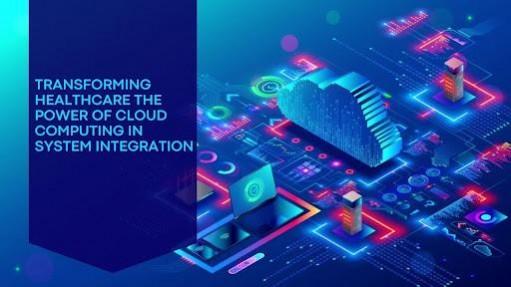
In an era where technology continuously reshapes industries, healthcare is no exception. Veera Venkata Ramana Murthy Bokka, a researcher dedicated to advancing healthcare technology, presents a framework that highlights the transformative impact of cloud computing on patient care and system integration. His work explores how cloud technologies enable healthcare providers to optimize resources, enhance security, and improve accessibility, ultimately leading to better patient outcomes.
Revolutionizing Healthcare Infrastructure
Cloud computing revolutionizes healthcare by integrating fragmented systems, improving interoperability, and securing medical records. It enhances efficiency, streamlines workflows, and enables real-time collaboration among healthcare professionals. This transformation supports advanced analytics, AI, and telehealth solutions, improving patient outcomes, reducing costs, and ensuring seamless, data-driven decision-making for a more effective and connected healthcare ecosystem.
Enhanced Data Security and Compliance
Security concerns have long been a significant barrier to digital transformation in healthcare. However, cloud platforms now offer advanced security measures that comply with strict regulations. Multi-layered encryption, role-based access control, and biometric authentication ensure that patient data remains confidential and protected from cyber threats. Additionally, automated compliance monitoring tools help organizations adhere to regulatory frameworks, reducing the risk of data breaches while maintaining patient trust.
Empowering Healthcare Through AI and Analytics
The integration of artificial intelligence (AI) and advanced analytics within cloud platforms allows for groundbreaking innovations in healthcare. Predictive analytics can identify disease patterns and recommend personalized treatment plans, enabling early intervention. AI-driven decision support systems assist medical professionals by analyzing vast datasets, improving diagnostic accuracy, and reducing errors. Furthermore, real-time monitoring of patient health through cloud-based IoT devices ensures timely interventions and remote healthcare services.
Telehealth and Remote Care Expansion
The rise of telehealth has been a defining moment in modern healthcare, and cloud computing plays a crucial role in its expansion. Cloud-based telehealth platforms enable secure, real-time consultations, remote diagnostics, and patient monitoring. These solutions bridge geographical gaps, making healthcare more accessible to underserved populations. Furthermore, intelligent scheduling systems, adaptive video streaming, and mobile health applications enhance the patient experience, ensuring continuous care without physical limitations.
Optimizing Healthcare Operations with Automation
Operational efficiency in healthcare is vital for reducing costs and improving service delivery. Cloud computing enables robotic process automation (RPA) to handle administrative tasks such as patient scheduling, insurance verification, and claims processing. Intelligent workflow automation optimizes resource allocation, reduces wait times, and enhances staff productivity. As a result, healthcare providers can focus more on patient care rather than administrative burdens.
Building Resilient and Scalable Systems
Healthcare organizations must be prepared for evolving demands, particularly in times of crisis. Cloud computing provides the scalability needed to accommodate surges in patient data, whether due to pandemics or natural disasters. Hybrid cloud models ensure critical patient information is stored securely on private servers while leveraging public cloud infrastructure for processing non-sensitive workloads. This balance between security and scalability allows for uninterrupted healthcare delivery.
Future Directions: AIoT in Healthcare
The convergence of Artificial Intelligence and the Internet of Things (AIoT) is set to redefine healthcare. Smart hospitals equipped with interconnected devices can automate patient monitoring, optimize medical equipment maintenance, and provide real-time alerts for critical health conditions. Cloud-based AIoT frameworks will further enhance personalized medicine, allowing for adaptive treatment strategies based on continuous patient data analysis.
In conclusion, the adoption of cloud computing in healthcare represents a transformative shift in medical service delivery, efficiency, and security. As outlined in the research by Veera Venkata Ramana Murthy Bokka, cloud platforms empower healthcare organizations to integrate, automate, and secure their operations while enhancing patient care. By embracing cloud technology, the healthcare industry is well-positioned to navigate future challenges and innovations, ensuring sustainable growth and improved health outcomes for all.















